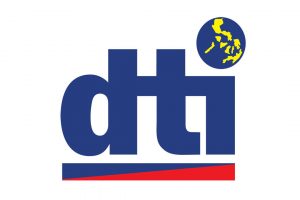A strategic national agenda to move forward

The May 2022 national elections are revealing themselves to be a political quagmire. The outcome and aftermath will have deep impact on every Filipino.
Realities on the ground present sobering and multi-faceted challenges for the next administration. These challenges must be met accordingly with responsive reforms to raise the country from the current economic doldrums towards recovery.
Early into the pandemic, the Stratbase ADR Institute endeavored to continually monitor the risks of the pandemic. After 21 months and on to the pre-election period, Stratbase also commissioned 12 special studies that provided analyses and recommended strategic policy reforms based on sound data. These studies delved deep into the issues on health, education, inequality, digitalization, climate action, national security, and democratic governance.
Addressing corruption is top of mind. As the health-cum-economic crisis persists, corruption corrodes our democratic way of life and institutions and every strand of our social fabric. The resulting hardships are aggravated by fragmented healthcare and social protection systems and the government’s ineffectual pandemic management.
In his study, Dr. Francisco Magno said that “democratic backsliding and weak governance contributed to the country’s poor pandemic performance. The declining percentile rank of the Philippines in the WGI (World Governance Indicators) can be arrested through improvements in controlling corruption, voice and accountability, government effectiveness, regulatory quality, rule of law, and political stability.”
It is thus “important that the pursuit of reforms and innovation are anchored on building strong institutions for citizen deliberation, participation, and oversight in the exercise of authority and the disbursement of public resources,” he said.
Key to the health challenge is a people-centered healthcare system. According to Magdalena A. Barcelon, M.D., Katharina Anne D. Berza, and Eleanor A. Jara, M.D., this system includes “shifts in policy direction and structural changes taking into consideration resource distribution, and people’s participation in health-related decision making at the national and community level.”
These social, political, and economic factors have all the more raised the urgency of addressing inequality and have compounded generational disparities and existing social cleavages. Dr. Ronald Mendoza said, “For these reasons, the challenge of our generation is no longer simply about reducing poverty. Reducing inequality is the key to political stability, crisis resilience and sustained economic development.”
Digital transformation and e-commerce, which the pandemic accelerated, demonstrates another challenge and opportunity as another pillar of economic recovery. In this sense, digital transformation, readiness, and infrastructure need to be prioritized in response to the digital divide or lack of access to digital services.
According to Dr. Sherwin Ona, “In times of crisis, people expect their government and its institutions to provide clarity of direction, stability, and hope. This means that future national leaders must be cognizant of its potentials and dangers of digitalization to be able to navigate its complexity and provide a clear path for a resilient Philippines.”
The rise of the digital economy, in turn, has brought the issue of bringing the consumer economy of the country to a new level. The digital landscape is the new arena in dealing with trade, investments, and supply chain issues, where the Philippines must find its niche in the global supply chains. This is where the role of the private sector becomes crucial. Moving forward, the situation necessitates a shift to investment-driven growth anchored on the principles of stakeholder capitalism.
In regional and international affairs, the growing global democratic convergence provides legitimacy to the promotion of multilateralism and rules-based order. The involvement of the international community in the Indo-Pacific amid China’s expansionist agenda in the West Philippine Sea has thus far been a deterrent against any escalation given the brewing tensions between littoral states, China, and international actors.
Richard Heydarian said that “as a US treaty ally, and a strategic partner of key regional powers such as Australia and Japan, the Philippines should leverage these new regional alignments to uphold its sovereign rights and defend its territorial integrity.” Further, he emphasized that the next administration should “respond to China’s strategic opportunism and leverage the broader shifts in geopolitical alignments in the Indo-Pacific.”
For Dr. Rene de Castro, “the key challenge for the 17th Philippine president is to transform the current administration’s unplanned and makeshift policy of limited hard balancing into a well-thought, comprehensive, and formal grand strategy that will guide the Philippines in the next six years.”
In a non-traditional security (NTS) outlook, Dr. Mely Caballero-Anthony observed that NTS is “Non-military in nature, they include climate change, pandemics, environmental degradation, and resource scarcity threatening food and energy security.” For Toby Melissa C. Monsod, Sara Jane Ahmed, and Golda P. Hilario, the Philippine contribution to the Paris Agreement should be strengthened where climate change adaptation and resilience serves as the anchor and sustainable development as the context.
Climate change poses a direct threat to livelihoods and human capital, as recently demonstrated anew by the devastation caused by typhoon Rai/Odette in the Visayas and Mindanao areas. Climate action, together with the other challenges mentioned, necessitates a multi-sectoral or a holistic collaboration among governmental and nongovernmental actors.
These evidence-based policy recommendations are a comprehensive set of developmental solutions of top thought leaders and movers from the country’s academe, private industries, civil society, and government. The objective is to help the next administration with a strategic national agenda that will be responsive to the daunting challenges towards recovery.
This coming election, we must choose leaders that have the competence, track record and who are deserving of our trust to lead us out of these hard times.
Victor Andres “Dindo” C. Manhit is the president of the Stratbase ADR Institute.




